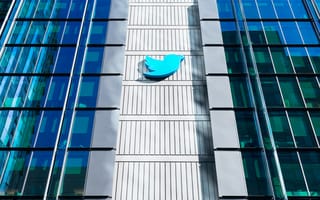
Twitter launches new tool to combat misinformation. Twitter’s latest feature, Birdwatch, enables users to identify information in tweets they believe might be misleading and write additional notes that provide context. Birdwatch isn’t available on Twitter’s central platform just yet, the feature is in its first phase of the pilot. For now, notes and suggested edits are available on a separate Birdwatch site. On the site, pilot participants can rate the helpfulness of notes added by other contributors. [Twitter]
OK Google, distribute the vaccine. The tech giant announced last week that it would pledge $150 million in ad grants and funding to health organizations in order to promote vaccine education. The company will also partner with One Medical to open vaccination sites in Los Angeles and the Bay Area. In addition, the search engine giant pledged $5 million in grants to organizations focused on increasing vaccine access for people of color and those living in rural areas. [TechCrunch]
The most ambitious crossover event in history. Last week, a group of rogue Redditors stole national headlines when they joined forces to drive Gamestop’s stock value up. Traders from the r/WallStreetBets forum used the Robinhood app to make their investments and push shares of the game retailer 14,300 percent higher over the past few months to spite short-selling hedge funds. Robinhood soon jumped to the top spot of Apple’s App Store on Wednesday and found itself in the middle of the Wall Street drama, and the company raised more than $1 billion from existing investors amid the trading frenzy. [CNET]
Charlie launches its budgeting app. The fintech platform aims to help its users transform their spending habits by utilizing aspects of gamification and psychology. Charlie users input specific information about their debt and the platform then crunches the numbers and gives the user a projected “debt-free date.” The app also analyzes a user’s current spending on a rolling basis so it can help identify areas where spending can be reduced. Sometime in the next few months, the company plans to roll out refinancing offerings. Later in the year, the company is aiming to launch its own debit card. [Built In SF]
A match made in edu-tainment heaven. Learning platform Quizlet and short-form video app TikTok have joined forces to make remote learning a bit more fun. The new partnership will enable TikTok creators in the education space to link Quizlet study sets directly to their videos for an interactive learning experience. Quizlet will offer TikTok teachers over 450 million study sets to choose from. The study sets cover a broad range of subject matter including science, history and language arts. [PRNewswire]
ServiceNow launches racial equity fund. The $100 million investment fund is designed to drive wealth creation in Black communities across the United States by funding local homeownership, entrepreneurship, and neighborhood revitalization efforts. The fund will be used to purchase smaller community loans to increase the lending capacity for local banks. ServiceNow will initially focus on investments in the Bay Area as well as Boston, Chicago, New York, Seattle, and Washington, D.C. [Businesswire]
Tech-xodus on the horizon? It’s a mixed bag. The majority of Bay Area tech companies are cutting their office space and plan to keep at least part of their workforce remote beyond the pandemic, according to a survey commissioned by SF.citi. The survey warns that a “breaking point” of tech departures and higher taxes could pose a significant challenge to the city’s economy. Still, many tech leaders expect the city to remain a mainstay for the industry. Tech giants like Google and Facebook are continuing to advance huge new office projects in the Bay Area. [GovTech]



